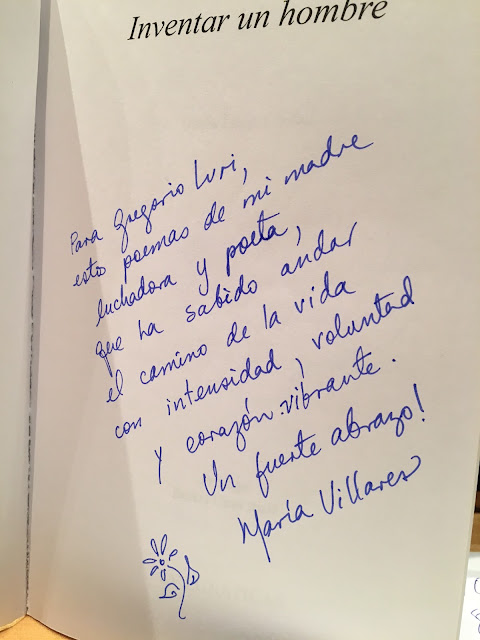Tania Díaz Castro me envía otro de los artículos que publica en
Cubanet. Como muchos de vosotros me habéis preguntado quién es Tania, aquí os dejo esta entrevista con ella:
Este es su escrito:
Como ningún familiar de Fidel Castro ha tenido la gentileza de comunicarle al pueblo cubano de qué murió el dictador invicto aquel 25 de noviembre del pasado año, ni siquiera Raúl, el sucesor dinástico, las conjeturas y especulaciones son tantas, que no hay por dónde empezar.
El escritor cubano Norberto Fuentes dijo desde su exilio que había muerto de una neumonía, de la que nunca quiso tratarse.
Otras hipótesis de la prensa extranjera, alegan que Fidel había muerto de un infarto, de un fulminante paro cardíaco, o de un paro respiratorio.
Hasta en Santa Fe, comunidad costera de La Habana donde vivo y donde además viven jardineros y dos de sus degustadores más conocidos, se señalan otras causas.
Clemente Flores, el más viejo de los degustadores, hoy convertido en alcohólico, quien por su estado calamitoso desde el punto de vista mental no he querido nunca entrevistar para que me cuente sus recuerdos, piensa que fue a consecuencia de una espina de pescado que lo ahogó. Y Orlando, el otro, sostiene que murió atragantado con algún alimento.
El pasado 25 de marzo se cumplieron cuatro meses de la muerte del omnímodo líder guerrillero y las suposiciones sobre su muerte pululan por las calles, como el marabú por los campos.
Pero la verdad es que murió al fin. No importa si alrededor de las seis de la tarde de aquel viernes 25, o a las 10 y 29 minutos de la misma noche.
Para el caso da igual.
Minutos después, Raúl dio la noticia en una alocución pública. Como se esperaba desde hacía diez años, salió en la primera plana de cada uno de los periódicos oficialistas cubanos y en gran parte del planeta, como realmente algo fuera de lo común y noticia espectacular.
Porque señores, en un mundo donde apenas quedan tres o cuatro dictadores totalitarios, el hecho de que se haya muerto quien rompió el récord de mayor permanencia en el poder -más de medio siglo- se convierte en la gran noticia del año, aunque la causa de muerte se desconozca.
Ahora bien, a mí que me gusta ir al fondo de cualquier dilema histórico, se me ha ocurrido pensar que el occiso pudo haberse ido del aire producto de un infarto, como se ha dicho y que como todo infarto, siempre es por un disgusto.
Me baso, sencillamente, en un hecho que me sugirió el periódico Granma, no precisamente la Mesa Redonda -espacio televisivo que no me pierdo ni un día porque me confirma cada vez más que la Revolución de Fidel también se fue a bolina-, cuando calificó al Premio Nobel de la Paz como ¨polémico por sus intereses políticos de fondo¨, en las figuras de Kissinger, Shimon Pérez y Barack Obama, justamente cuando Juan Manuel Santos es proclamado Premio Nobel de la Paz 2016.
Ni siquiera Granma evitó la inmodestia de expresar que el Premio lo merecía Fidel, en vez del presidente colombiano. Es evidente que sabe cuánto tiempo esperó el dictador cubano por ese Premio y lamenta que sea Santos, por sus ¨decididos esfuerzos en llevar la paz a su país¨, quien lo haya merecido y que expresara, al recibirlo, que lo veía como ¨un regalo del cielo¨.
La pregunta final no se hace esperar:
Viéndose cerca de la muerte, ¿no cabe pensar que el pobre monarca cubano esperaba recibir ese premio, compuesto de una gran suma de dólares, una medalla de oro colombiano y un reconocimiento internacional, por su aporte a la desmovilización de las guerrillas colombianas, aunque ayudó a fomentarlas?
¿No cabe pensar que el disgusto al verse derrotado por Santos pudo haberle partido el corazón, conformándose con el Premio Lenin de la Paz, recibido en 1961, que para colmo de males, desapareció del mapa hace 27 años, junto con el socialismo soviético?
Fidel murió derrotado, cuando vio que no se merecía ese regalo del cielo.
Artículo relacionado: "Premios que vale la pena recordar", por Sergio Alejandro Gómez,
Granma, 21 de marzo, 2017.















































